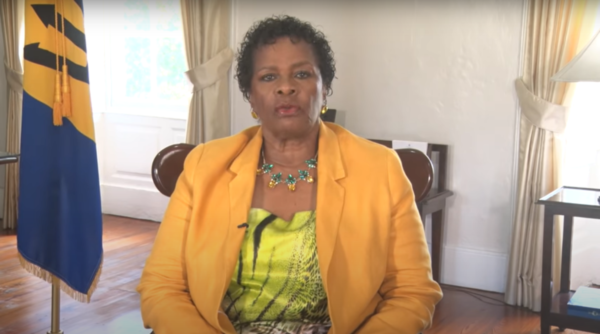Barbados Governor-General Sandra Mason announced on Tuesday, Sept. 15, that the Caribbean nation would drop Queen Elizabeth II as head of state and become a republic by Nov. 30, 2021, the date which will mark the 55th anniversary of the country’s independence from the British Empire.
“Having attained Independence over half a century ago, our country can be in no doubt about its capacity for self-governance. The time has come to fully leave our colonial past behind. Barbadians want a Barbadian Head of State,” Mason said in a speech prepared by Prime Minister Mia Mottley. “This is the ultimate statement of confidence in who we are and what we are capable of achieving. Hence, Barbados will take the next logical step toward full sovereignty and become a Republic by the time we celebrate our 55th Anniversary of Independence.”

Eighty Englishmen brought 10 Africans to Barbados in 1627. British elites established sugarcane plantations and forced West Africans to work the land on the 166-square-mile colony in the southeastern Caribbean. The slave population grew until Africans outnumbered whites on the island. Resistance efforts were quickly quashed by British troops.
In 1834 slaves were emancipated, although the people of Barbados, encouraged by the rise of Jamaican leader Marcus Garvey, struggled for independence from the British Empire until 1966.
“Barbados’ first prime minister, The Rt. Excellent Errol Walton Barrow, cautioned against loitering on colonial premises. That warning is as relevant today as it was in 1966,” Mason said.
The queen’s role as head of state of the Caribbean nation is considered to be almost entirely ceremonial and symbolic, as she is not involved in day-to-day political affairs. Barbados is formally a parliamentary democracy under a constitutional monarchy.
According to the royal website: “As the ‘constitutional monarch’ of Barbados, The Queen is not involved in the day-to-day business of Barbados’s Government. However, she is in regular contact with the Governor-General – her representative there – who keeps her updated with any significant news or developments.”
The prime minister of Barbados is appointed by the governor-general, who is appointed by the queen.
The queen remains recognized as head of state in more than a dozen nations previously colonized by the British Empire. Many Barbadians view the monarch as a symbol of colonialism and have long since called for her removal.
A representative of Buckingham Palace did not offer comment on the decision to remove the queen, saying it is a matter for the people of Barbados.
Barbados will be the first country in nearly 30 years to dismiss a monarch. The East African country of Mauritius was the last country to do so, in 1992. Jamaica has also expressed plans to become a republic.
Roy R. Morris, press secretary to the prime minister of Barbados, told Reuters there was no specific trigger for the renewed push to become a republic, and that a longstanding promise was being fulfilled.
Guyana, Trinidad and Tobago, and Dominica, all former British colonies, have each become republics after gaining independence.


